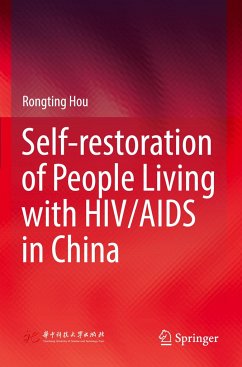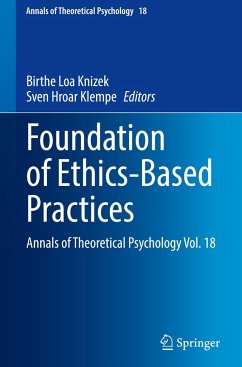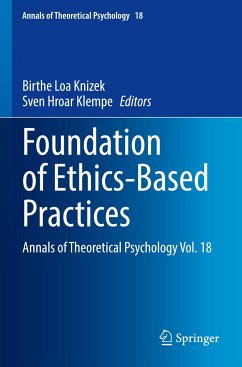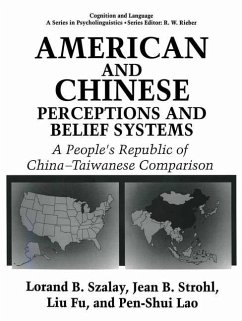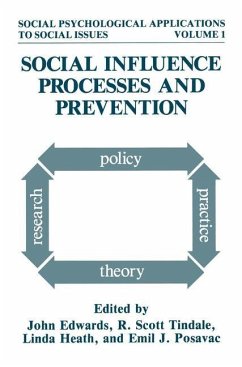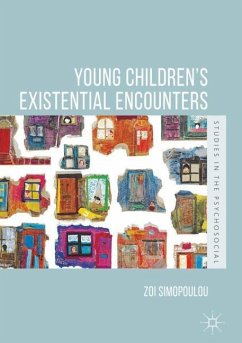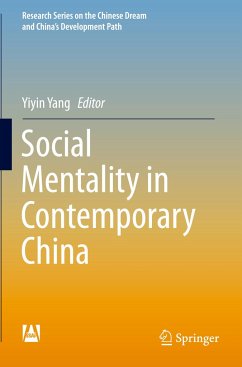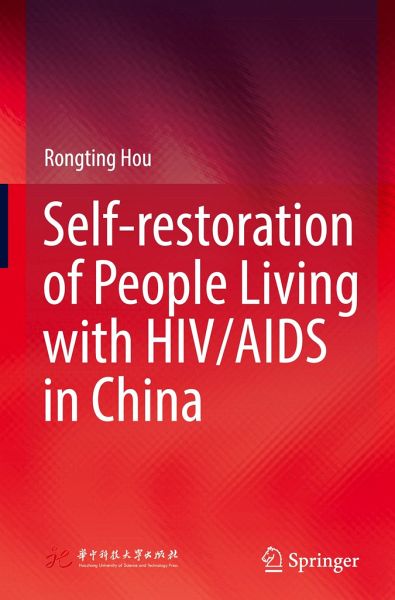
Self-restoration of People Living with HIV/AIDS in China
Versandkostenfrei!
Versandfertig in 6-10 Tagen
76,99 €
inkl. MwSt.
Weitere Ausgaben:

PAYBACK Punkte
38 °P sammeln!
This book adopts an approach based on relational psychoanalysis, developed in the USA in and since the 1990s and guided by the self-psychology championed by Kohut and the Post-Kohutians. How people infected with HIV/AIDS live their lives is a growing concern in China. The book, based on relational psychoanalysis, explores their self-restoration, and more specifically, how adopting an attitude of "dying to live" helps them face tremendous challenges in life. By interviewing selected individuals at a given organization, the author focuses on their life experiences and on corresponding interventi...
This book adopts an approach based on relational psychoanalysis, developed in the USA in and since the 1990s and guided by the self-psychology championed by Kohut and the Post-Kohutians. How people infected with HIV/AIDS live their lives is a growing concern in China. The book, based on relational psychoanalysis, explores their self-restoration, and more specifically, how adopting an attitude of "dying to live" helps them face tremendous challenges in life. By interviewing selected individuals at a given organization, the author focuses on their life experiences and on corresponding interventional mechanisms.
The book's three most important features are as follows: 1) its application of self-psychology by Heinz Kohut into the context of psychological intervention; 2) a wealth of qualitative data gathered through in-depth interviews; and 3) the author's self-reflection and analysis. The book offers a valuable guide for graduate students, researchers, and policymakers alike.
By interviewing selected individuals at a given organization, the book focuses on the life histories of selected individuals after being diagnosed with AIDS (screening HIV positive) and on corresponding interventional mechanisms. Further, itemploys the self and self-object as key explanatory terms for the necessary psychotherapeutic interventions,and in order to create guidelines that sufficiently reflect the illness and corresponding interventions. Given its scope and focus, the book offers a valuable guide for graduate students, researchers, and policymakers alike.
The book's three most important features are as follows: 1) its application of self-psychology by Heinz Kohut into the context of psychological intervention; 2) a wealth of qualitative data gathered through in-depth interviews; and 3) the author's self-reflection and analysis. The book offers a valuable guide for graduate students, researchers, and policymakers alike.
By interviewing selected individuals at a given organization, the book focuses on the life histories of selected individuals after being diagnosed with AIDS (screening HIV positive) and on corresponding interventional mechanisms. Further, itemploys the self and self-object as key explanatory terms for the necessary psychotherapeutic interventions,and in order to create guidelines that sufficiently reflect the illness and corresponding interventions. Given its scope and focus, the book offers a valuable guide for graduate students, researchers, and policymakers alike.





